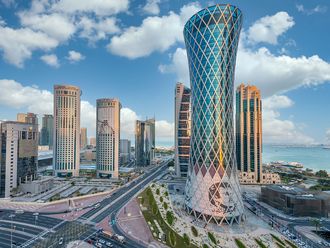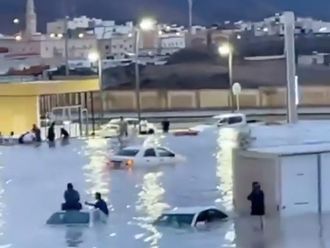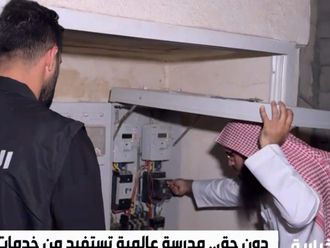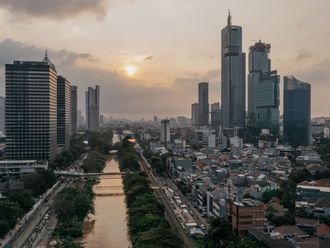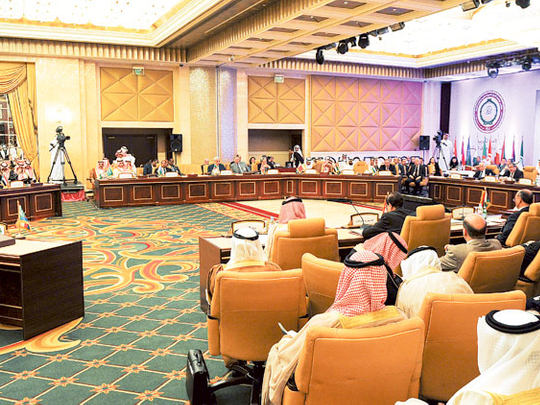
Doha: Syria will loom large when the leaders of the Arab countries convene for their annual summit in the Qatari capital Doha on Tuesday, as it was announced that the Syrian opposition will take the country’s vacant seat at the summit.
A meeting of the foreign ministers on Sunday to finalise the agenda of the two-day summit cautiously opted to have the leaders decide on the issue following the emergence of divisions between the countries that wanted the opposition to take the representative seat and those that preferred to remove the Syrian chair from around the table.
Syria has been suspended by the Arab League and did not attend the summit held last year in the Iraqi capital Baghdad.
Other major issues on the agenda of the 24th Arab regular summit, and the second to be held in Qatar, include the situation in Palestine where Arab countries blame Israeli hardliners for stalling the peace process, and the much-anticipated overhaul of the Arab League, founded in 1945, and its organisations.
“The enormous challenges and the critical times that the Arabs are facing today as well the high ambitions and the aspirations of the people have imposed a rich agenda for the summit,” Shaikh Hamad Bin Jasem Al Thani, Qatar’s prime minister, said.
“The successive developments and rapid changes in the region and the world require that we Arabs adopt a common stance, coordinate our political and diplomatic efforts and reinvigorate our joint work so that we can influence what is happening, and not be merely influenced,” said Shaikh Hamad, also his country’s foreign minister, at the end of the meeting.
The Palestinian issue will remain the main focus of the Arabs until a fair, permanent and comprehensive solution is achieved and gives the Palestinians the right to have their own independent state with Jerusalem as its capital, he said.
“Israel’s only option is to accept this solution if it wants peace and is willing to achieve it. The current violations of the sanctity of the Holy Aqsa Mosque and the assaults on the worshippers there as well as the intensification of the settlements [colonies] drive in the occupied lands and the Judaisation of Jerusalem are illegitimate acts that clash with the international laws and deepen tension in the region. The international community should assume its responsibilities and force Israel to put an end to its dangerous violations,” Shaikh Hamad said.
However, Shaikh Hamad said that while the Palestinian cause remained high on the agenda, other major issues needed prompt attention.
“The situation in Syria and its dangerous implications for the country and the region requires full support from the Arabs to the Syrian people who are fighting for freedom, dignity and social justice,” he said. “Millions of Syrians have been turned into refugees in their own country and abroad in one of the most dramatic tragedies of history while the Security Council is unable to assume its duty and responsibility towards a people being slaughtered,” he said.
The overhaul of the Arab League was also a pressing matter and deserved the attention of the Arabs “in order to modernise the League and empower it to keep up with regional and international developments, he added.
“The Arab league charter should be reviewed to make it more accommodating of new requirements and to turn the pan-Arab institution into the voice of the people, not of governments. The Arab League should also pay more attention to civil society organisations and should set up a dedicated department that will create cohesion and interaction between official and non-official actions,” he said.
With pan-Arab economic issues also on the table, Shaikh Hamad stressed the significance of cooperation between the Arab states.
“Economic integration is the fastest and most robust way to strengthen bonds between countries and people and to boost Arab development based on benefiting from natural wealth, developing human resources, achieving the highest development levels in the industrial and agricultural sectors and modernising education and health services,” he said.


